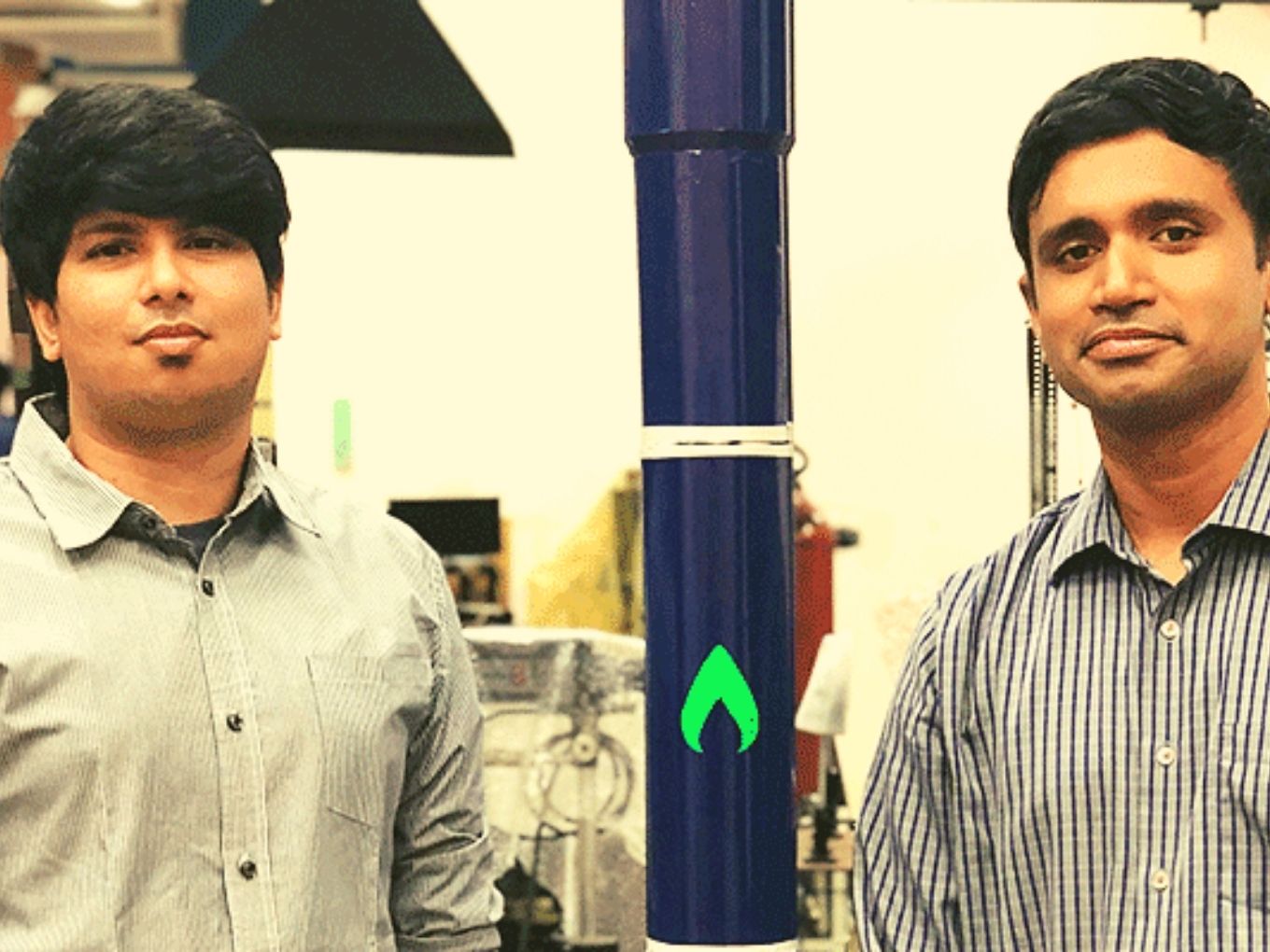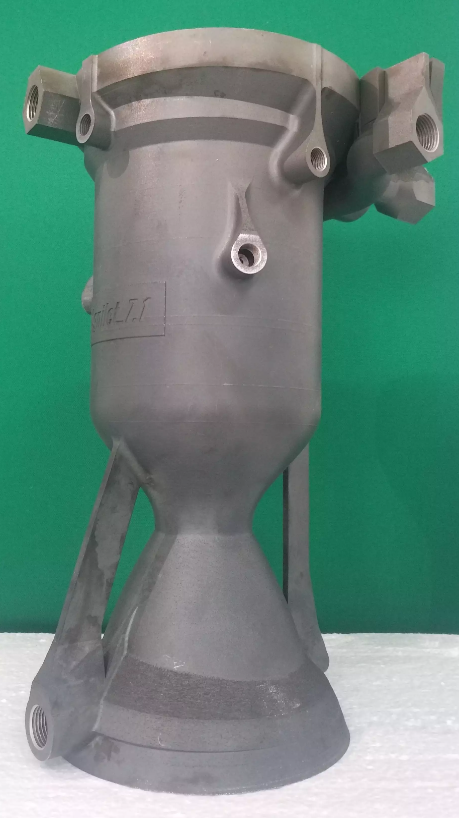
Chennai-based space tech startup Agnikul Cosmos has announced that it has successfully test fired the world’s first 3D-printed rocket engine or higher stage semi-cryogenic rocket engine called Agnilet.
Cofounder Srinath Ravichandran said that Agnilet is expected to be used in the second stage of Agnikul’s launch vehicle Agniban. The vehicle has been designed to carry payloads up to 100 kg to low Earth orbits (up to 700 km) with a plug-and-play engine configuration. The company is planning to launch this by the end of 2022.
Further, he said that the assembly or fabrication and turnaround time for developing the entire 3D rocket is less than four days, and it can be used directly in the rocket. The semi-cryogenic rocket engine will be operating on liquid propellants, where it will be burning kerosene in liquid oxygen.
Started by Ravichandran and Moin SPM in 2017, Agnikul operates out of the National Centre for Combustion Research at IIT Chennai. Since 2018, the company has claimed to be testing its 3D engines on a smaller scale. In the coming months, the company is planning to do a full-scale test of its 3D rocket.

This development comes to light after Mahindra Group chairman Anand Mahindra revealed that the startup recently test-fired its 3D printed semi cryo rocket. “Terrific champions of the future. I’ve personally invested in the company,” he tweeted.
AGNIKUL is a startup that will build launch vehicles to carry micro/nano satellites to low earth orbit on demand. They recently test-fired a fully 3D printed semi cryo rocket engine at IIT Madras. Terrific champions of the future. I’ve personally invested in the company pic.twitter.com/njW1Gld1wa
— anand mahindra (@anandmahindra) February 10, 2021
Prior to its semi cryo rocket test-fire, Agnikul had signed a non-disclosure agreement with the Department of Space (DoS), where it was given access to the Indian Space Research Organisation (ISRO) facilities and technical expertise to build its rocket and launch vehicle, under its newly established Indian National Space Promotion and Authorisation Centre (IN-SPACe) entity.
Besides Agnikul, Indian space tech startups Skyroot Aerospace and Bellatrix Aerospace also signed a partnership deal last week to launch space taxis by 2023. Skyroot has also developed a 3D printed rocket engine called Dhawan-1.
Last week, Delhi-based GPS navigation company MapMyIndia announced its partnership with ISRO to launch mapping portals, apps and geospatial services. This was later followed by the Indian government launching new guidelines for acquiring and using geospatial data. This move is expected to impact foreign mapping services, particularly Google Maps, which has been widely used in the country.
The post Chennai Spacetech Startup Agnikul Test Fires World’s First 3D-Printed Rocket Engine appeared first on Inc42 Media.
0 Comments